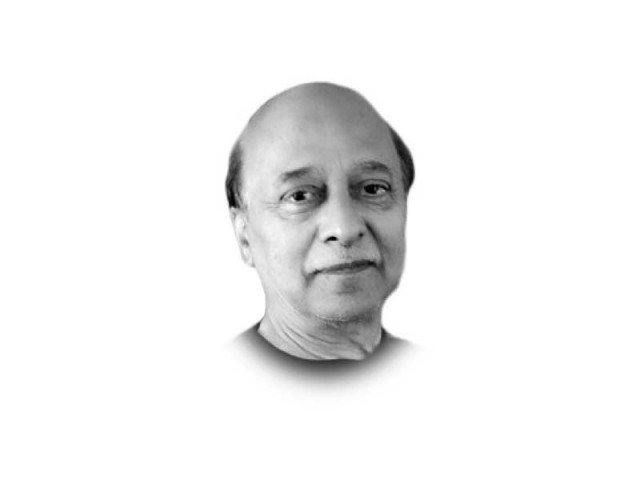Why touch hornet’s nest?
Gen Bajwa opened old wounds from a long history of injustice to and discrimination of the majority population

General Qamar Javed Bajwa’s swansong at GHQ on November 23 was a cocktail of admissions of past guilt, mistakes and the armed forces’ resolve to stay away from politics. By doing so, he kicked up more questions than he answered. The first-ever public admission of political interference notwithstanding, Bajwa opened a Pandora’s box — a hornet’s nest that will now keep evoking responses.
Let us pick on a couple of prominent deflections the General attempted consciously or otherwise: when Gen Bajwa for instance described the debacle in ‘East Pakistan’ as a “political, and not military defeat”, he clearly attempted to absolve the army of any responsibility. “I want to rectify some facts here… the East Pakistan crisis was not a military but a political failure,” he said. It was a glaringly conscious attempt to draw distinction between “political and military”. This way he tried to dump the blame of events on civilians — Sheikh Mujeeburrehman and Zulfikar Ali Bhutto. The results were astounding: Awami League won 160 of the 162 general seats and all seven women’s seats in East Pakistan; Bhutto’s PPP won only 81 general seats and five women’s seats, all in West Pakistan. But the transition became controversial, with the “superior” West Pakistani civil-military elites refusing to transfer power.
Gen Bajwa’s attempt to draw this “political and military” distinction for apportioning the blame amounted to a brazen travesty of facts. Pakistan had been under the military rule for straight eleven years when Pakistani troops finally surrendered on December 16, 1971. Gen Ayub Khan had seized power in 1958 and had to give in to internal pressure for passing on the power to Gen Yahya Khan in 1969 for the general elections in 1970.
So, what political defeat did Gen Bajwa mean? Of course certain reasons and conditions developed under a typical military mindset that was apathetic, disrespectful and dismissive of the rights of what constituted the majority of the Pakistani population then. This mindset deluded itself with a misplaced notion i.e. defence of East Pakistan lies in West Pakistan. The myopic, hard-power centric military strategy eventually led to one of the most humiliating capitulations of recent history. Low ranking officers and soldiers valiantly fought and laid their lives with honour and dignity but several seniors had already left for safety, including Sahabzada Yaqub Khan.
Wonder why Gen Bajwa chose to unnecessarily open old wounds that had resulted from a long history of injustice to and discrimination of the majority population. It was mindboggling indeed.
Secondly, the General took on the critics of the armed forces by drawing on the Indian example. “I have been thinking for many years that the Indian army commits the grave human rights violations in the world, but their people are less critical of them. On the contrary, our army, which is busy day and night in the service of the nation, is criticised from time to time,” he said.
Hardly would anybody deny or gloss over the sacrifices of the soldiers and officers but the point the army’s top brass overlooks is that the Indian military establishment has hardly any political role. Neither has the Indian army any history of political involvement nor is it seen in public life unlike Pakistan, where Rawalpindi represents the strongest of the two visible power centres. In India, the counterpart of the ISPR does not “shape” and influence “narratives” the way it happens here.
Lastly, the army chief told the audience at the GHQ auditorium that the armed forces decided and resolved in February 2021 to step away from politics. The events that unfolded with the vote of no-confidence until the countless cases and arrests — including those against Imran Khan, Shehbaz Gill, Senator Azam Swati and journalists — until recently hardly offer any visible signs of disengagement. What transpired between April 8 and 9 outside the Parliament House also belies such claims. When the TV screens screamed with the press conference by the heads of ISI and ISPR on October 27, this again reinforced the perception that the establishment was very much around and asserting itself vis a vis a former prime minister.
The most glaring example of this defiance was in fact the Islamabad Security Dialogue. On April 1, PM Imran Khan spoke of the need for an independent foreign policy and of Pakistan’s neutrality in the Russo-Ukraine conflict; but the following day, the army chief took a contrarian view and called the Russian invasion as “very unfortunate”.
Strangely, the war was just into its fifth week, the Russians had barely set out but Gen Bajwa denounced it because “thousands of people have been killed, millions made refugees and half of Ukraine destroyed”.
What triggered the decision to disengage from politics? What were the pressing compulsions or promising motivation behind this decision? This warrants an answer to lend credibility to the claims that the armed forces have decided to focus on their primary task.
Published in The Express Tribune, December 2nd, 2022.
Like Opinion & Editorial on Facebook, follow @ETOpEd on Twitter to receive all updates on all our daily pieces.

















COMMENTS
Comments are moderated and generally will be posted if they are on-topic and not abusive.
For more information, please see our Comments FAQ